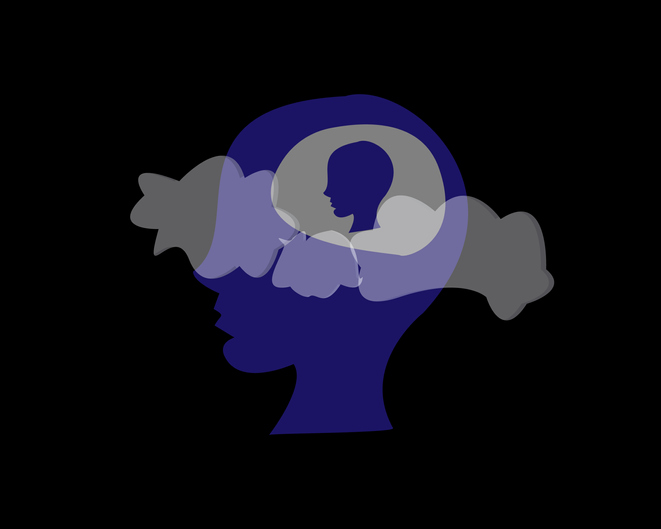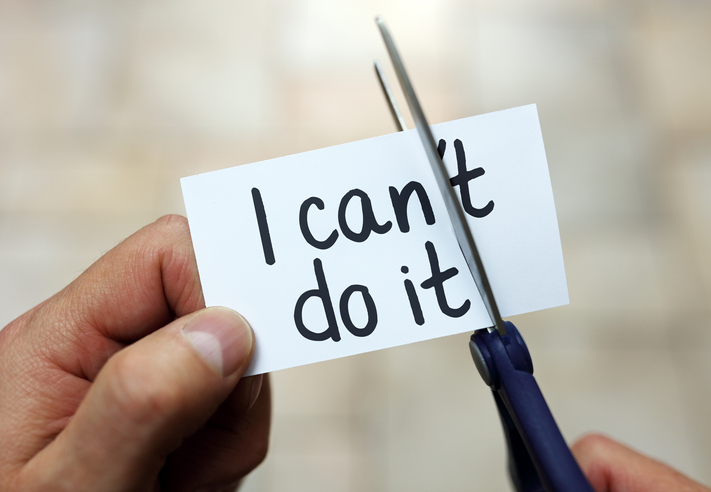Anyone with depression can tell you how hard productivity is when you’re fighting this debilitating mental illness. Having no motivation to do anything is one of depression’s many honorable qualities. In order to do anything, you have to fight really – and I mean really – hard to be productive. Some days might come harder than others, and that’s totally okay. Take every day as it comes and try your hardest to focus on the here and now. Fortunately, there are mental techniques and strategies you can employ to gradually regain the motivation needed to live a full life.
1. ACCEPT IT AND DON’T PUSH IT AWAY
I know it may sound a little counterintuitive, but it is so important that you accept your feelings for what they are and when you are feeling them. The more you try to fight those negative feelings, push them away, or try to bury them – the worse you will feel in the long run. Not to mention, the longer you try to escape those negative feelings, the more guilty and shameful you will feel for having those negative feelings in the first place. It really starts to take a harder toll on your mental and emotional health as well, since you’re essentially making yourself deal with it longer.
So instead, allow yourself to be aware of those emotions that you are currently feeling. Feel them, accept them, and trust that they will soon pass. If you need to cry – cry it out. If you need to go away and take some time for yourself – then 100% do so! Because those feelings will pass. Accepting them as they happen can be one of the most provoking ways to handle depression in the moment.
2. ONE TASK AT A TIME
Tell yourself all you have to do is this one task. Just focus on this one task. Breaking a task into smaller sections will help. Even if your goal is as simple as making yourself three healthy meals today, focus on the here and now. All you have to focus on right now is that it’s breakfast time. Look no further. By breaking your daily responsibilities down into smaller steps, the day might feel a bit less overwhelming, while concentrating on smaller, specific tasks can be easier than attempting to focus on an entire to-do list. Be realistic and don’t set the bar too high, because you don’t want to feel worse if you can’t complete everything you set out to. Remember baby steps are still steps. Even if the task takes you all day, it does not matter. Don’t focus on the logistics of things. You are stronger than you know!
3. SET SMALL GOALS AND REWARD YOURSELF
When depression drains your motivation, you have to work to create new incentive to replace what existed naturally before your mental health deteriorated. This starts with setting small goals. For example, your goal could be cleaning out your closet. If you succeed in that, reward yourself by cooking your favorite meal or watching an episode of the latest TV show. This process of small accomplishments and rewards will help restore your motivation.
As you begin to feel better, steadily increase the difficulty of the goals. Try going on a long run, for example, and rewarding yourself with a small dessert. This makes way for accomplishment which leads to a very good feeling. If you start to feel overwhelmed, stop and re-evaluate your expectations. Eventually the goal can be something as challenging as learning a new skill or trying something you’ve never done. Try different options and see what works.
4. DON’T FEED THE BEAST
Feeling bad about your situation will just make things worse. Depression feeds (and grows) from negative emotions, like self-pity, self-doubt, and fears. It’s impossible to eradicate these thoughts but you can learn to identify them, which then helps you minimize them.
The best thing to do is the opposite! Lift yourself up with motivational speeches or videos and gain insights from them. If you don’t have time for a whole video then you can always read a few positive quotes to boost your mood. One positive statement can outweigh thousands of negative ones. Just focusing on positive statements for a few minutes has the power to transform your whole day. Here are a few examples:
-
I love myself unconditionally
-
I am STRONG!
-
Life wants the best for me. I am OK with where I am right now.
-
How I feel matters, therefore I concentrate on aspects of life that make me feel good!
-
My challenges bring me better opportunities.
-
I am in control of my thoughts and my life.
5. ACTION BEFORE MOTIVATION
One of the biggest myths of the human psyche is that we have to feel like doing something before we do it. Not true. Think of all the things you do that you don’t want to: get out of bed on a rainy Monday, pay your taxes, call your cable company’s customer service line. But we do them anyway.
The same principle applies for things that aren’t so aversive, but are still hard: go to the gym, sit down to study, or clean your kitchen, but here’s the thing: you might think you have to psych yourself up before you can get started, but you actually don’t. Instead, you can go through the motions: put on your gym shoes, crack the textbook, unload the dishwasher, all without feeling like doing any of it. But guess what? Surprisingly often, getting started gathers momentum, which in turn changes your mood. In short, rather than waiting until you feel like getting started, just get started. Then, your mood (and motivation) will catch up. Doing something rewarding makes us motivated to do it more.
When you’re in a funk, go through those motions, even if your heart’s not in it. As you reap the reward of getting stuff done, your motivation will catch up and create a success spiral. Sure, it’s not the same as feeling ready to conquer the world, but it will move you forward, which is what matters in the end.
6. ACKNOWLEDGE YOURSELF
Surviving any day with depression is a huge accomplishment. You are fighting an incredible war, and each day is a battle itself. Understand this. Scream it from your roof if you have to. Don’t compare your accomplishments to other people’s, because that will get you nowhere. Focus on the positive steps you made today. When possible, congratulate others on their accomplishments as well. Being depressed and trying to be productive is no small feat. But with the proper tools and mindset, you’ll be able to find productivity. You can do this!





